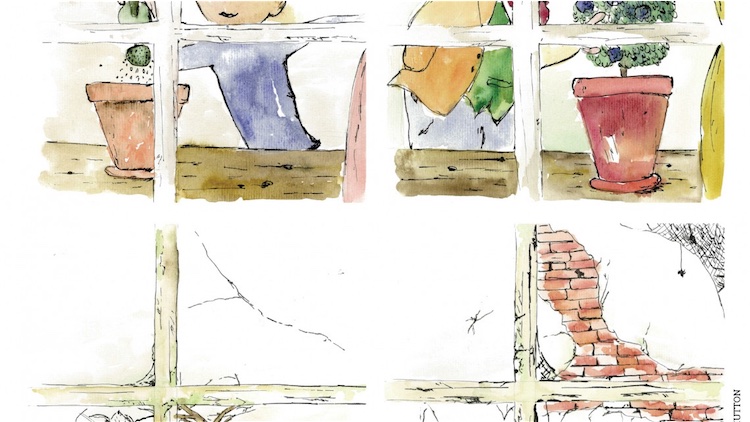Are We In The Age of Stupid?
By Leigha Speirs-Hutton | May 28, 2015

The Age of Stupid is a documentary-film set in 2055, a time distinguished by derelict buildings, burning plains, and poverty-stricken, war-ravaged people. A time when climate change has shown its full colours, and all that people can do is lament about all the things they did wrong. Why had they ignored the obvious signs of climate change when they “could have saved themselves”? Why had they instead kept marching forward, blindly allowing this devastating future to unfold? London is flooded, Sydney burning, Las Vegas overtaken by desert. The Amazon rainforest is completely burnt up, the Alps snowless, and India devastated by nuclear war. But our future isn’t that bleak, right? When the film ended, I shook my computer, yelling defiantly, “That’s not my future! I’m not going to let that happen!”
That stubbornness to prove the filmmakers wrong got me thinking. But the more I thought, the more I realised that although the dismal scenario presented in the film won’t necessarily happen in forty years, eventually all those cities will fall, because of the slow, yet steady, attack of time. When I think about it logically, I realise time destroys everything. Wait a minute. Hold the phone. Does this mean time will destroy me too?
The Bhagavad-gita, an ancient yogic text I’ve been reading, confirms the undeniable fact that “All created beings [unfortunately that includes me] are unmanifest in their beginning, manifest in their interim state, and unmanifest again when annihilated.” (2.28) Hmm… okay, one look at my grandma means I can’t deny the truth in that. So what will happen to me then? Will I just disappear into dust? Clearly, like my grandma’s body, my body is affected by time, considering that the twenty-two-year-old me is a little bigger than the five-year-old me, but does this mean I will really cease to exist?
I’ve opened a whole can of worms now! Once you start enquiring about these kinds of things, it’s pretty hard to stop. For example, what is that “I” that I’m scared of losing? “I” am using my fingers to type these words, but I’d never say “I” fingers are typing. That’s just silly. Well, what drives those fingers then? What is that “I”? That is self-realisation. Woah, I’m self-realised? I guess I can now confidently say, “I am not this body.”
Darn, that just brought about a whole lot more questions. Let’s just focus on “I am not this body,” and keep things simple. Well, relatively simple. If I examine this body, for example, I can see that it’s constantly changing throughout my life, from infancy, to youth, to old age, and yet I am still me. And just as my body has changed throughout my life, so has my mind. Yet, I was me at birth and am still me now. But who is the “I” that gives me the identity of being the same person throughout my life even though “my” body and “my” mind are constantly changing?
Krishna teaches in the Bhagavad-gita that the self is not the seen but the seer, not the experience but the experiencer. I am not even Leigha Speirs-Hutton, but rather the experiencer of being Leigha Speirs-Hutton. Krishna also teaches that the presence of a “living force,” or self, is the difference between a living body and a dead body. To further ignite contemplation on this essential truth, I’ll share this analogy: On a cloudy day we cannot see the sun, yet we know it’s there because of the presence of its light; similarly, although we can’t perceive the soul with our present material senses, we can determine its existence by the presence of consciousness. Without that consciousness, the body is just a mass of dead matter. Dead matter, if you haven’t noticed already, doesn’t do much.
I won’t deny the importance of the message in The Age of Stupid. We really need to wake up to the warning signs these scientists are concerned with and what we can see so clearly around us. We need to become more aware of what we consume and how we consume, and have more respect for the environment. But there is a similar, if not greater, urgency to explore the spiritual science of the self, which places value on the living force within this body. Bhakti-yogis, both past and present, have taught that if we truly understood ourselves, we would, as a by-product, perceive a lasting solution to the environmental, social, and economic crises that we may encounter. So why not check out what the comprehensive wisdom contained in the Bhagavad-gita and Srimad-Bhagavatam have to offer on how to combat this Age of Stupid?














